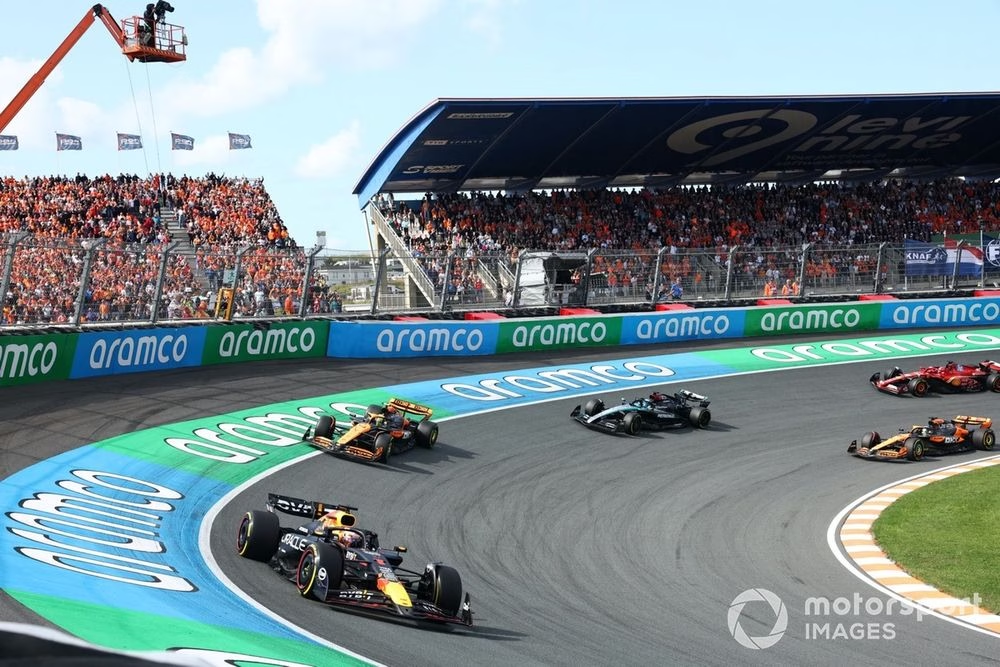Organisers of Formula 1’s Dutch Grand Prix have explained the reasoning behind calling time on their event while local hero Max Verstappen is still at the height of his powers.
On Wednesday the Dutch Grand Prix and F1 jointly announced they agreed a one-year contract extension for 2026, but that edition will also be Zandvoort’s last for the time being.
Propelled by Verstappen’s exploding popularity in his home country, Zandvoort’s return in 2021 has been an all-round success for F1, with the event scoring high marks for its festival-like atmosphere and off-track entertainment, as well as its green credentials given the reliance on public transportation.
The event was always seen as one that was only possible under the unique circumstances provided by Verstappen, with its fate intertwined with that of the Red Bull driver whose contract expires in 2028, and who has long signaled he isn’t keen on going on forever in F1.
But as one of several European F1 rounds vying to keep their spot on a rammed 24-race calendar, the Dutch event has quickly held up its hand and said it is not to desperate to continue its race until Verstappen is done at all costs.
Various scenarios were on the table, including being part of F1’s planned rotation system for some of its European races, until the Dutch decided a few weeks ago that one additional edition beyond their current contract was enough.
Max Verstappen, Red Bull Racing RB20, Lando Norris, McLaren MCL38, George Russell, Mercedes F1 W15, Oscar Piastri, McLaren MCL38
Photo by: Alastair Staley / Motorsport Images
According to Zandvoort circuit director Robert van Overdijk, the organisers felt it was prudent to call it quits while they were still ahead, with their privately funded event carrying too many financial risks to keep going on the long-term.
“Of course, we have been speaking with F1 management continuously,” Van Overdijk told Motorsport.com. “For the period after 2025 all sorts of scenarios were on the table, but a few weeks ago we decided that stopping on a high note is the best option for us at the moment. Unlike many other countries, we don’t receive government support, so at the end of the day we are responsible for the bottom line, and based on that we have to be very thorough on calculating our financial risks.”
Government support, as enjoyed by the neighboring Belgian Grand Prix in Spa, isn’t just key in helping afford F1’s sanctioning fee. It also helps absorb…
Click Here to Read the Full Original Article at Motorsport.com – Formula 1 – Stories…

